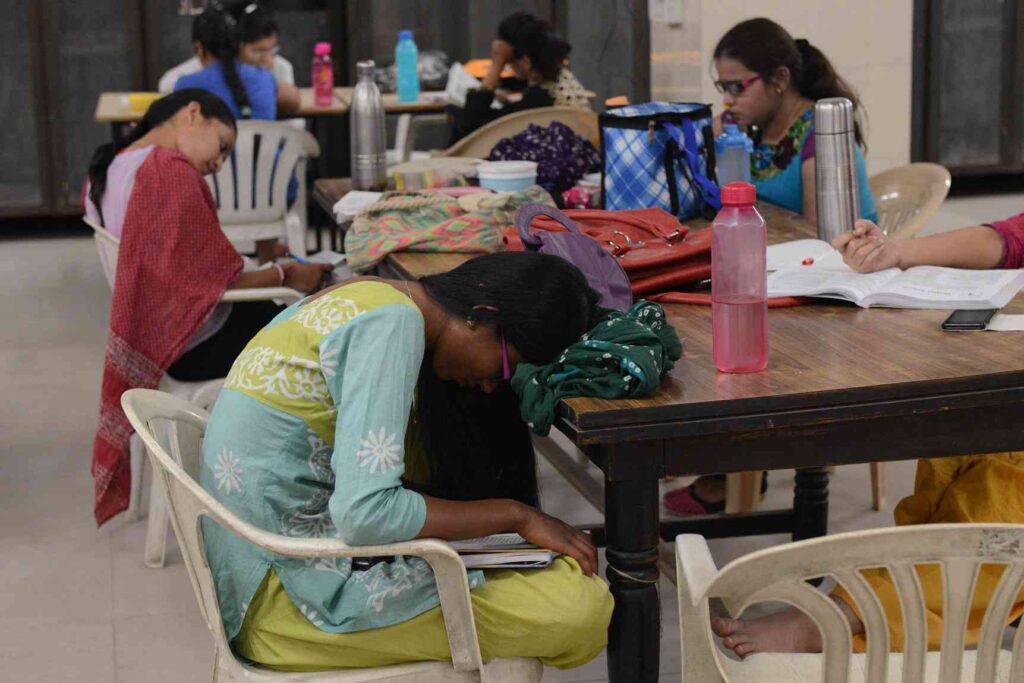In a relentless pursuit of one of a degree considered the noblest in academia, we often forget the cost it extracts from those who seek it. Each year, India produces more than 24,000 doctoral graduates, ranking fourth in the world, as per the OCED report. It is home to some of the most prestigious institutions and research organizations, that have produced leading scientists, engineers, and veterans. For millions of students, it is the pinnacle of achievement, a place where years of blood, sweat, and tears will be rewarded. From exhausting examinations to proposals, they somehow reach their dream college to get their ‘PhD’ degree. However, behind the accolades and academic achievements, they meet a reality that no one talks about – a grim and silent struggle.

Reports of PhD students being under immense stress and depression have been raising concerns in the academic fraternity. In a recent survey by a student body at IIT-K, research scholars spoke about their challenges – almost 80% of the enrolled scholars agreed that they have faced mental health issues during their doctorate program. The survey also revealed that 60% of the students wanted to drop out of their research programs for various factors which included ‘favoritism,’ ‘elitism,’ and ‘casteism’ by academic guides. The situation is concerning especially when the institute has witnessed four suicides by three PhD students and one postgraduate student since last year.

Mental health professionals often highlight the complex nature of issues faced by the PhD students. In Western countries where counseling forms an integral part of the PhD process, Indian institutions lack accessible and stigma-free mental health support systems. The students often face multiple challenges including – pressure to publish papers, lack of funding, limited resources, institutional apathy, and isolation are just some of them that are visible on the surface.
The stigma surrounding mental health challenges faced by academicians adds to the load. Students are often expected to bear all the adversity in the name of ‘hard work’. They hesitate to seek any help afraid of being labelled as weak or incapable. These students often isolate themselves on this long journey, and one of the reasons is seeing their peers climb the corporate ladder.

As if the constant pressure wasn’t enough, the toxic relationship between guides and the students is also one of the challenges. Each student is required to complete their PhD under senior professors or guides, who often wield enormous power over their mentees. The power is often abused, where differences and disagreements can be taken in a negative light, impacting the career of the students. In December 2022, an MS-PhD student at IISER Pune tried to end her life after her professor’s guide stole her ‘thesis’ because she reported his abusive behavior to the committee. This isn’t an isolated incident and the fact that many of them go unreported due to the fear of being sabotaged and excluded from the community.

PhD students extensively rely on funding and fellowships, which help them to pursue their research. However, bureaucratic red tape and lack of budget make it a drowning field. Scholars at central and state universities have complained of the meager stipend that they receive, making it difficult to even pay the rent, let alone carry research as a full-time job. While NEP 2020 promises better infrastructure and extensive funding to improve the situation, researchers are still struggling. These students, especially from socially and marginalized communities are even more affected by the financial precarity. They have to take up freelance and full-time jobs which further adds to stress and strain, not allowing them to devote actual time and energy to their academic aspirations.
PhD is a long road and is certainly rewarding at the end. However, the path is filled with obstacles that need to be addressed as soon as possible. Academic institutions need to overhaul their priorities, valuing the well-being of their students as much as research outcomes. These scholars are the future of academia and it is time that we ensure they have the support they need to thrive, not just survive.

















